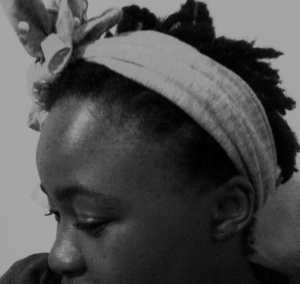I recently went through one of the most traumatic experiences of my life at the hands of a book. Yes, a book. I read it cover to cover reluctantly, only persisting because I was compelled to write an essay on it as a course requirement at the end of term. Before that words had always been wonderful things; always associated with catharsis, creativity, spirituality, relaxation and at the very least escape. Never did it occur to me that words could be vile things.
![K Sello Duiker [http://www.randomstruik.co.za/about-the-author.php?authorID=4765]](https://thedustysoul.files.wordpress.com/2012/06/author1282725743.jpg?w=558)
Duiker (1974-2005) is also the author of The Quiet Violence of Dreams. Source: http://www.randomstruik.co.za/
When I read, I am at that moment held hostage by the words on that page, restricted to what the book describes, the world the book invites me into. As I read I must involve myself in the world of the book, partake of its experiences as though they were my own. It had never occurred to me that reading is, by that description, a violent experience only because my emotions are captive and at the mercy of the author’s pen. It’s a quiet violence because it’s a hostage experience I’ve entered into willingly.
Azure is a young, black male, and Duiker’s description of his experiences raises some compelling questions about identity, history, trauma and its effects on individuals and groups, the representation of violence and reality, and so on. My contention with the book was its graphic nature: Azure is molested, raped and abused physically and emotionally, and far from glossing over these facts, the reader is forced to experience his molestation step-by-step as Duiker takes us through each act in detail. It was difficult to read, to say the least. Because of this, the book alienated me, I recoiled from putting myself in the focaliser’s shoes, and so for the first time, I was repelled by words.
- Thirteen Cents is not for the sensitive reader. Source: http://www.sashaarms.com/2010/11/thirteen-cents/
I am not sure if I was more disturbed by having to engage with such violent imagery or with the fact that there are young boys in Cape Town for whom such violence is part of their every day lived experience. I felt at once ashamed to be human in a world where other human beings perform such atrocities on other human beings, and at the same time I felt angered by my helplessness. At the least Duiker managed to get me thinking about the human condition from a new perspective.
On this, the first ‘birthday’ of theDustySoulDiary, I am able to look back on my growth as a writer, how blogging has helped me gain confidence in my craft, and how it has improved my skill. There’s still a lot of growth I need to experience as a writer, but I’ll get there. I am grateful, at the least, for the freedom to write without restriction, and for that I thank the great freedom writers whose words were penned by blood and pain for me and my country. My experience with Thirteen Cents has shown me anew the power of words, of literature… Viewed as a violent act, the power words have take on new meaning in that old adage: the pen is mightier than the sword, for although the wounds of a ‘sword’ may heal, words stay with you forever.
**To mark a year of blogging, DustySoul adds a category to the four theDiary already has: “Look”. As times goes by, the idea behind this new category will be more apparent. For now, happy Youth Day.
Yours,
DustySoul
“When writers die they become books.” – Jorge Luis Borges




![The_Prophet_Book_Kahlil_Gibran_Arcturus_Publishing[1]](https://thedustysoul.files.wordpress.com/2012/01/the_prophet_book_kahlil_gibran_arcturus_publishing1.jpg?w=209&h=300)

![Khalil_Gibran[1]](https://thedustysoul.files.wordpress.com/2012/01/khalil_gibran1.jpg?w=180&h=223)











